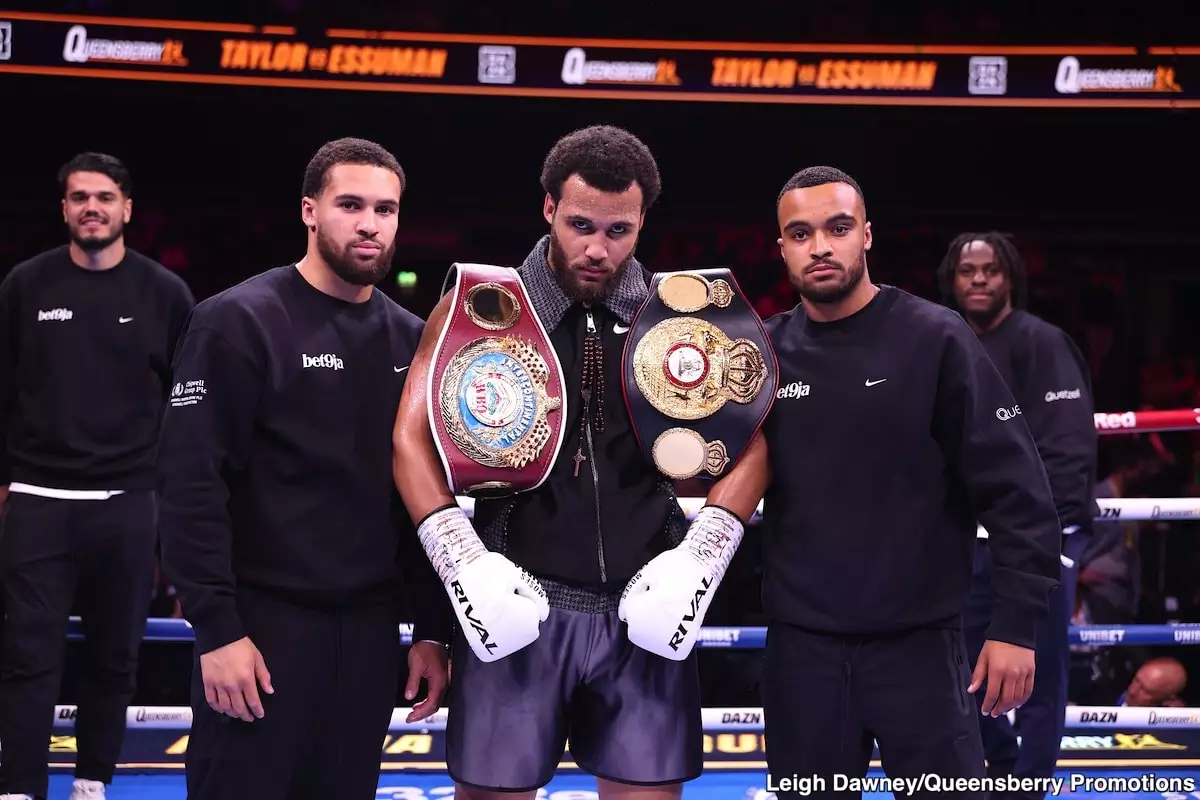Boxing is a sport ripe with narratives of triumph, struggle, and indecipherable politics, and the latest twist involves the meteoric rise of Moses Itauma. After his emphatic second-round knockout of seasoned fighter Mike Balogun, the World Boxing Organization (WBO) elevated Itauma to the coveted #1 position in its heavyweight rankings. On the surface, this appears to be a justification of his potent potential; however, upon closer scrutiny, it raises significant questions about the integrity of the ranking system itself. This elevation has sparked a wave of critique from boxing aficionados who see this rise as premature, given Itauma’s lack of high-caliber opponents thus far in his career.
Questionable Victories and Their Implications
A critical analysis reveals that Itauma’s record, albeit impressive on a surface level (12-0 with 10 knockouts), is heavily padded with victories over uninspiring opposition. Besides Balogun, who at 36 has notched only two notable wins in his career, Itauma’s top accomplishments include beating Demsey McKean, who recently suffered a knockout loss and was fresh off a year-long hiatus, and Mariusz Wach, a 45-year-old journeyman. Given this backdrop, critics are left scratching their heads as to how these wins – particularly against such questionable foes – merit a spot at the very top of the WBO’s heavyweight rankings.
One might argue that boxing, as a sport, can often reward carefully curated matchups, thus giving rise to fighters who appear dominant without having truly tested their mettle against formidable adversaries. This conundrum paints a disheartening picture of the prospects of young fighters climbing the ranks purely based on hype rather than merit.
The Weight of Perception and Ambition
Moses Itauma’s post-fight comments provide further food for thought. He expressed confidence in his performance and knowledge of the importance of seizing opportunities. Yet, the fervor he displayed makes it easy to forget that bravado does not equate to proven skill, especially when one is skirting around quality competition. The ballooning perception of his prowess – rooted in promotional tactics rather than raw ability – evokes the story of his brother, Karol Itauma, who initially dazzled fans with similar knockout aplomb only to falter against stiffer competition.
This raises the question: are we merely witnessing a pattern of bubble fighters being promoted beyond their capability for commercial gains? With fingers crossed, observers hope that Moses Itauma will prove skeptics wrong, yet history shows us that untested fighters can often collapse under the weight of expectations when faced with authentic challenges.
Competitive Reality and Future Aspirations
In the face of critical scrutiny regarding his readiness, Moses Itauma himself acknowledged the necessity of stepping up his competition to truly hone his craft. He cited names like Martin Bakole and Agit Kabayel as potential matchups that could serve to either validate his position or expose his limitations. Yet, despite calling for higher-caliber fights, the current setting appears to lean favorably toward maintaining a shield around him for promotional reasons.
The mention of his ambition to fight in America also presents an interesting dimension. The American boxing stage is iconic and unforgiving, where many dreams are either cemented or shattered. With Itauma’s raw talent, he may find his footing or may just end up as another cautionary tale of a prospect who couldn’t cut it when it mattered most.
The Future of Ranking Systems in Boxing
At its core, the situation surrounding Moses Itauma provides a crucial lens through which we can examine the broader systemic issues inherent in boxing’s ranking mechanisms. The rush to award a spotlight to less-experienced fighters based on marketing and hype could undermine the sport’s legitimacy. When belts and rankings are thrown around without the requisite bouts to substantiate their worth, the line between a deserving contender and an overhyped novice becomes perilously thin.
As boxing fans, we crave thrilling performances backed by a foundation of genuine competition. While Itauma’s future remains to be written, it serves as a potent reminder that achievements must ultimately come from the ring’s canvas, not solely from marketing departments. The boxing world waits with bated breath: will Itauma rise to the challenge, or will his ascent be marred by the realities of facing seasoned opponents?


Leave a Reply